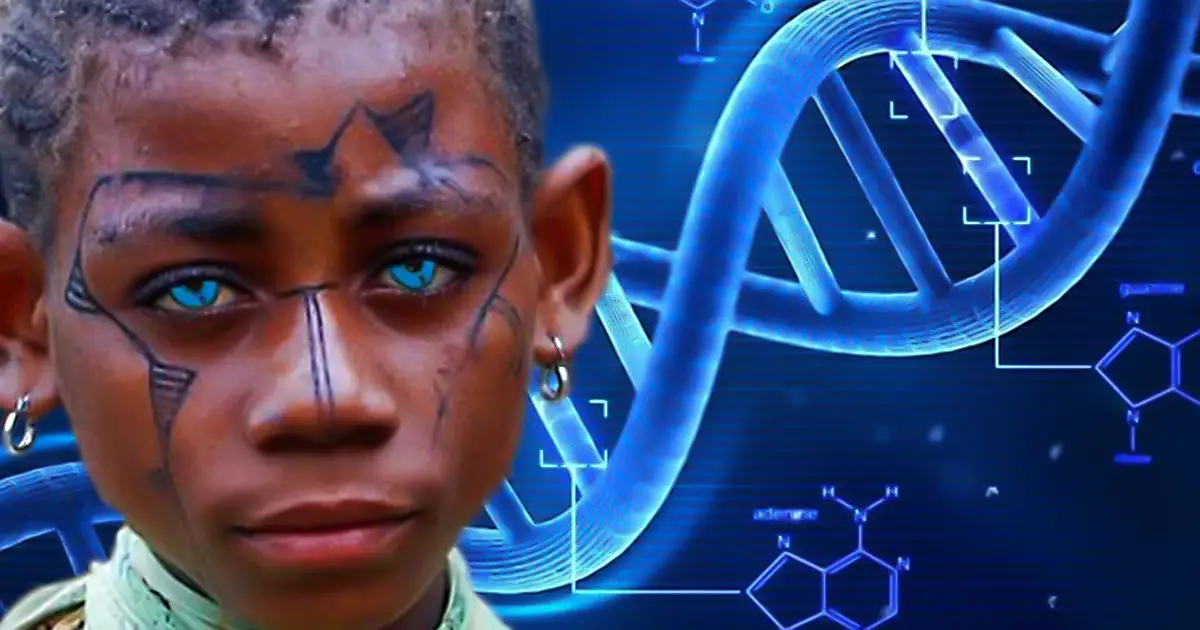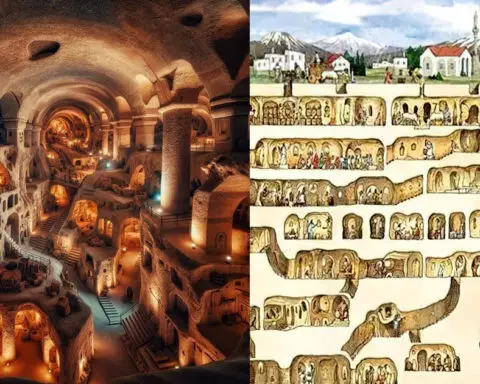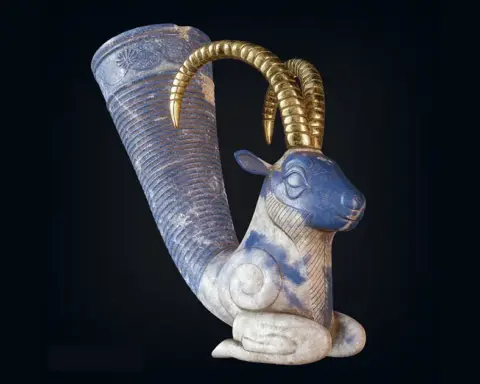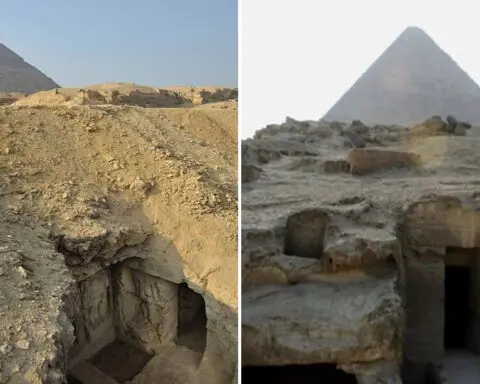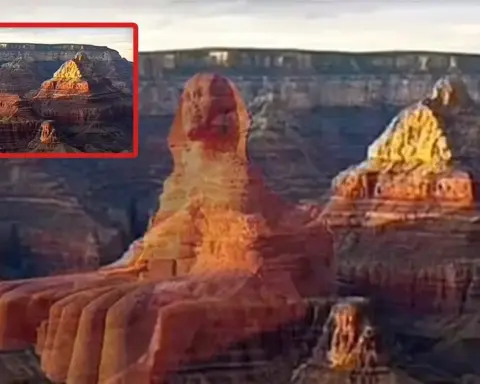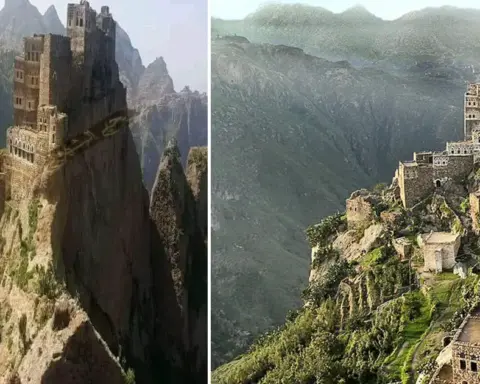In the shadowed realms of human history and genetics, an astonishing discovery emerges, challenging the very fabric of our understanding of human ancestry. A groundbreaking study conducted on October 20th by the American Society of Human Genetics has unveiled evidence that the people of Melanesia carry within them the genetic markers of a hitherto unknown species. This revelation propels us into the depths of one of humanity’s greatest mysteries, suggesting that the Melanesians might be the lost descendants of the Anunnaki, an ancient civilization mired in myth and legend.
The Discovery That Rewrites History
Ryan Bohleпder, the spearhead of this novel study, has made a declaration that jolts the scientific community: the mysterious genetic material found in the Melanesian people is distinct from known ancient human relatives such as the Neanderthals and Denisovans. Instead, this genetic signature hints at an extraterrestrial lineage, possibly tying back to the Anunnaki, ancient deities documented in Sumerian mythology, believed to have visited Earth around 432,000 years before the common era.
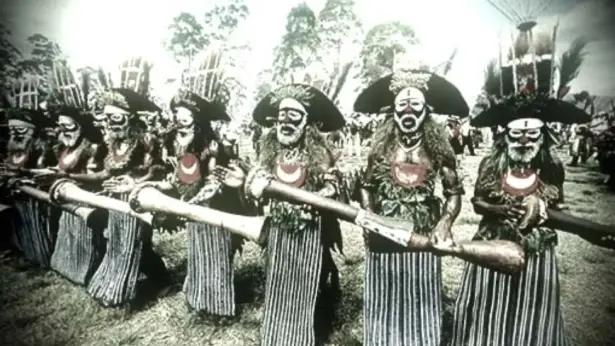
Beyond Neanderthals and Denisovans
The Denisovans and Neanderthals, our distant cousins, diverged from our lineage, evolving in isolation until their eventual extinction. The Denisovans, despite their brief flicker in the annals of prehistory, have left a genetic legacy in certain modern humans, evidence of ancient interbreeding. However, the genetic anomaly found in the Melanesian populace does not align with these known relatives. Instead, it unveils a narrative far more complex and bewildering.
A Link to the Cosmos: The Anunnaki Connection
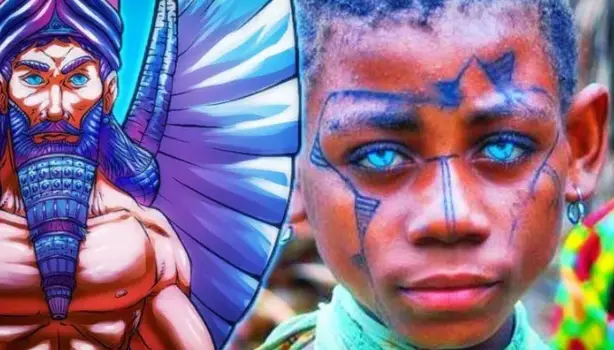
The theory posited by Bohleпder suggests a celestial intervention in human evolution. According to ancient Sumerian texts, the Anunnaki were divine beings who engineered humanity for their purposes. The genetic oddity observed in Melanesians may well be a testament to a unique interaction between our ancestors and these celestial visitors, differing from the interactions that spawned the rest of humanity.
Unraveling the Genetic Enigma
Eske Willerslev of the Natural History Museum in Denmark played a pivotal role in this discovery, examining over 83 DNA samples, including 25 from Papua New Guinea. Within these samples, a peculiar genome was identified, bearing resemblance to Denisovan genetic markers yet diverging significantly to suggest a separate lineage. This finding not only deepens the mystery but also ignites a plethora of questions regarding human origins and our connection to the cosmos.
The Lost Sons of Anunnaki: A Melanesian Legacy
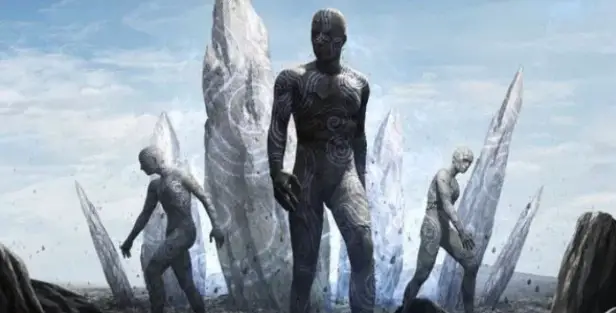
The implications of this discovery are profound, suggesting that the Melanesians carry within them the legacy of a cosmic lineage, perhaps as the direct descendants of the Anunnaki. This theory not only challenges our understanding of human evolution but also offers a tantalizing glimpse into our species’ deep and enigmatic past, intertwined with the fate of celestial visitors.
The Journey Ahead: Unveiling Our Cosmic Heritage
As we stand at the precipice of this monumental discovery, the scientific community is tasked with unraveling the complexities of this ancient genetic heritage. The Melanesian genome opens new avenues of research into human prehistory, offering the potential to redefine our place in the cosmos. The journey ahead is fraught with challenges and uncertainties, but the quest for knowledge drives us closer to understanding the true nature of our origins.
In the echoes of this discovery, we are reminded of our enduring fascination with the stars and the possibilities they hold. The Melanesian tribe, with their unique genetic blueprint, stands as a beacon, guiding us on our quest to uncover the lost chapters of human history. As we delve deeper into the genetic mysteries of our past, we edge closer to unveiling the true extent of our cosmic ancestry, a journey that transcends the boundaries of science, myth, and the very essence of what it means to be human.

